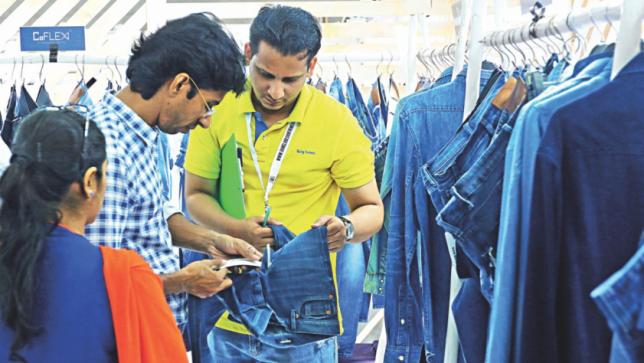Exports in fiscal 2018 could have been $17.4b more: PRI

Bangladesh could have exported $17.4 billion more last fiscal year even with the current capacity were there certain constrains not in place, found a study by the Policy Research Institute.
Export receipts in fiscal 2017-18 amounted to $36.66 billion, up 5.81 percent from a year earlier but short of the government's target of $37.5 billion, according to data from the Export Promotion Bureau.
Had Bangladesh utilised its full export potential, receipts that year would have been $54.06 billion, according to the study styled “Bangladesh LDC graduation and apparel exports to the EU”.
The major constraints include low productivity, poor infrastructure and low price negotiation capacity by the manufacturers and so on, said Abdur Razzaque, research director of the PRI, while presenting the study yesterday at the PRI office in Dhaka.
Garment exporters, government higher ups, researchers and exporters from different sectors attended the discussion. PRI Chairman Zaidi Sattar moderated the discussion.
Bangladesh may lose $1.6 billion worth of apparel business from the EU once the country graduates from the least-developed country bracket to the developing country one in 2027 as the local exporters will have to pay 8 percent to 10 percent duty upon export to the EU, Razzaque said.
Currently, the EU is the largest export destination for Bangladesh, accounting for $21 billion worth of shipments.
Razzaque suggested for intense negotiation with the buyers for better prices, lobbying with the EU for signing the Free Trade Agreement, product diversification, improving infrastructure and promoting competitiveness through technology upgradation.
Rubana Huq, managing director of Mohammadi Group, a leading garment exporter, however said the pattern of consumerism needs to be taken into account too.
“There's no reason for us to be assuming that consumers will be buying the same products and in the same quantities.” The narrative on labour must change as well.
“Otherwise, outside interventions will continue to happen using labour issues as an excuse. Simply ratification does not ensure compliance with convention,” she added.
Fazlul Hoque, former president of the Bangladesh Knitwear Manufacturers and Exporters Association (BKMEA), said absorbing the 10 percent duty on export to the EU will not be a problem for exporters.
Firstly, every year Bangladeshi exporters face 5 percent higher cost of production for different reasons and secondly the buyers always pay 5 to 6 percent lower prices due to the exporters' low price negotiation capacity.
So upon graduation, the buyers will also realise how squeezed out the manufacturers are and pay more.
Rather, an optimistic Hoque said there is a possibility of gaining $30 billion worth of garment business of China's within the next seven to eight years.
Even with the current status of production capacity by the major garment producing countries like Vietnam, Cambodia and Myanmar do not have the capacity to absorb such a big amount of work orders shifted from China, he added.
“I do not think buyers will move to other countries automatically overnight,” said Mostafa Abid Khan, member of Bangladesh Trade Tariff Commission, adding that China is interested in investing in Bangladesh's garment sector.
The government will address the trade issues properly in the eighth five-year plan, which will be formulated in March next year, said Shamsul Alam, senior secretary to the planning commission.
In June the government will reveal the outcomes of the study on LDC graduation it is preparing to decide on the measures to take to boost the country's exports. Currently, Bangla-deshi garment shipments face 15.62 percent duty in the US and yet they are performing well.
“If they can perform well in the US, they will also be able to perform strongly in the EU even after facing 10 percent duty upon graduation,” he added.
Mohammed Nasir, vice-president of the Bangladesh Garment Manufac-turers and Exporters Association, also spoke.
